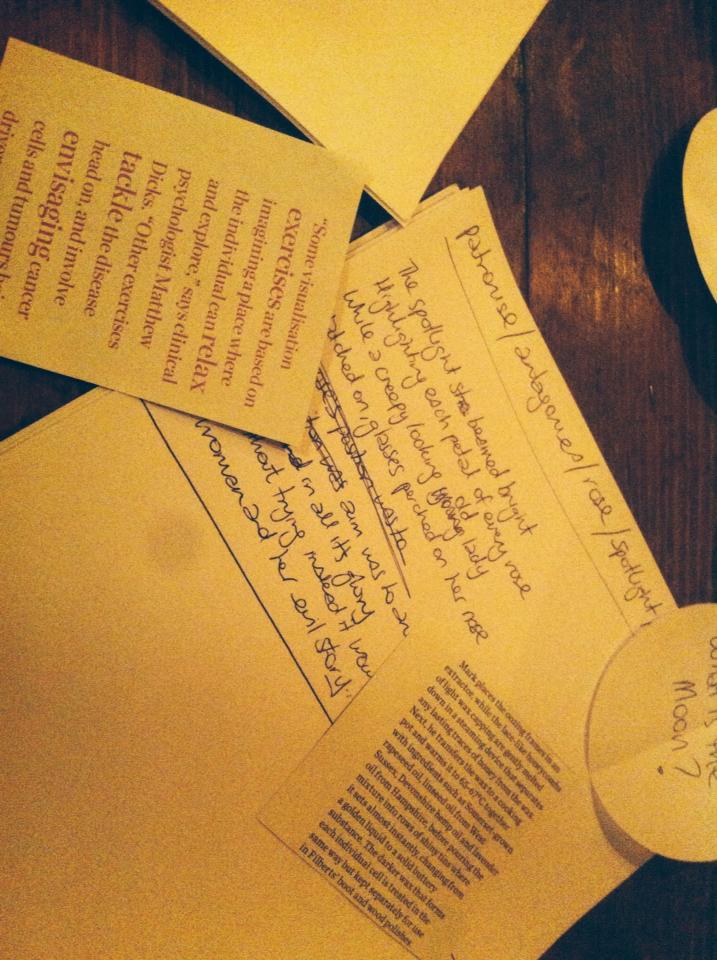Writing groups can be a great way to meet like-minded people, share ideas, get feedback and get writing. They can take lots of different forms and can be anything from 2-3 people to 50+! Sarah, from the publishing platform CompletelyNovel, recently decided that she wasn’t doing enough writing in her day, so she set out to create her own writing group in Brighton. If you’re looking to do the same, or would like to get some useful feedback on your work-in-progress, we’ve compiled our 10 top tips for starting a writing group, below.

1. Have a clear aim - Writing groups can be great for sharing your work and getting all-important feedback. They can also be really great to get writing, networking or even just a casual break from the screen. It’s important to have a clear idea of what you want your writing group to do before you do it. Don’t try to do everything at once.
2. Check out the local scene - There might already be a writing group in the area doing similar things to what you’re looking for. If so, try joining them for a few sessions and see how you get on. Check your local listings, or The Directory of Writers’ Groups.
3. Find a suitable venue - Our top tip is the local pub. A lot of them will have smaller rooms upstairs that are quieter, and your writers can get a drink whilst they’re there. A lot of places will let you reserve a space for free, as you’ll be bringing more custom to the bar. Other spaces you can try are the local library or community centre. Make sure that wherever you choose is accessible, easy to find and is within budget.
4. Charge or no charge? - Writing groups focusing on networking or casual conversation rarely have a fee to join. But if you’re having to put some serious work into organising the group, are giving something useful to writers such as professional feedback, or need to cover the venue charges, then you need to have a think about how much you are going to charge writers to join you. Typically, local writing groups are pay-per-session, but larger, established groups might charge a membership. Think about how many people you’re expecting to turn up, and what your overheads are. Pay-per-session groups are rarely more than £5 unless the writers are receiving a service.
If you do charge for your writing group, you should check whether or not you will need to declare a capital gain in your taxes. These examples from HM Revenue and Customs give more information on this.

5. Set a time - What kind of writers are you looking to attract to your group? If it’s older people, or perhaps even stay-at-home parents, you might hold the class on a weekday morning or afternoon. If you want to throw the net wider, you need to allow time for people to finish work in the evening. A good start time is usually around 6.30-7.30. You should also think about how often you are going to meet: weekly? Bi-weekly? Once every few months?
6. Set clear rules - How long do people get to read their work? What kind of feedback is to be given (if any)? It’s important to set clear rules on timing and feedback to make sure that everyone gets an equal go at sharing their work, and that the feedback remains constructive. Write the rules down on a piece of card and bring it with you to each session - that way everyone knows where they stand. Holly Lisle outlines some popular rules on her website.
7. Tell people! - There’s not much use having a writing group with only one person, so make sure you tell people when and where the group meets. Come up with a fun, relevant name and make a facebook group - this is a good way to allow people to keep in touch ‘out of hours’. You can also make a twitter account to attract new members, post adverts in local shop windows and press, and even make a website.
8. Provide the essentials - It’s always a good idea to bring spare paper and pens to each session in case members forget. You don’t want anyone missing out because they didn’t pack a pen! If you’re running a creative writing group, you should also bring along props for your writing games. You can find lots of fun games online that other groups have shared (such as these from The 6’ Ferret Writing Group) - try them and see which one works best for you.
9. Create a contact list - This is essential, especially if you have an irregular meeting schedule. You need to make sure all of your members are contactable in case the group cannot run for whatever reason. Get email addresses, phone numbers or do it all through social media. You can also use this list to share writing tips and other events out of hours.
10. Enjoy yourself - When you’re organising something, it can be very easy to get swept away with admin and lose sight of why you’re doing it in the first place. Make sure everything remains manageable and make sure you’re getting what you want from the group, whether that is a feedback on your WIP, new writing ideas or even just a chin-wag!
CompletelyNovel offers a whole host of advice for writers in their advice hub. Head on over to read, write and get published the CompletelyNovel way.
Ya Thanks! that's really helpful :)
Yaa got some points and hope these surely work for the book i am thinking to start my work with.... Thanks:)
I haven't seen anything mentioned about sending work to one another in advance. I'm a member of a fairly long-standing small writing group of threes, and we send pieces of our WIP to one another (up to a previously-agreed wordcount limit) by e-mail for critique a couple of weeks in advance of a meeting, then discuss when we meet, as well as giving written feedback on a printout if appropriate. It works for us - I find it easier to take in the work and critique effectively if we've had this time to read, and it also means we can consider larger sections of each other's work - parts of a novel or complete short stories - than would presumably be the case with reading out. I thought it worth mentioning as it may work for others instead of, or as well as, the "reading out in front of the group" technique.